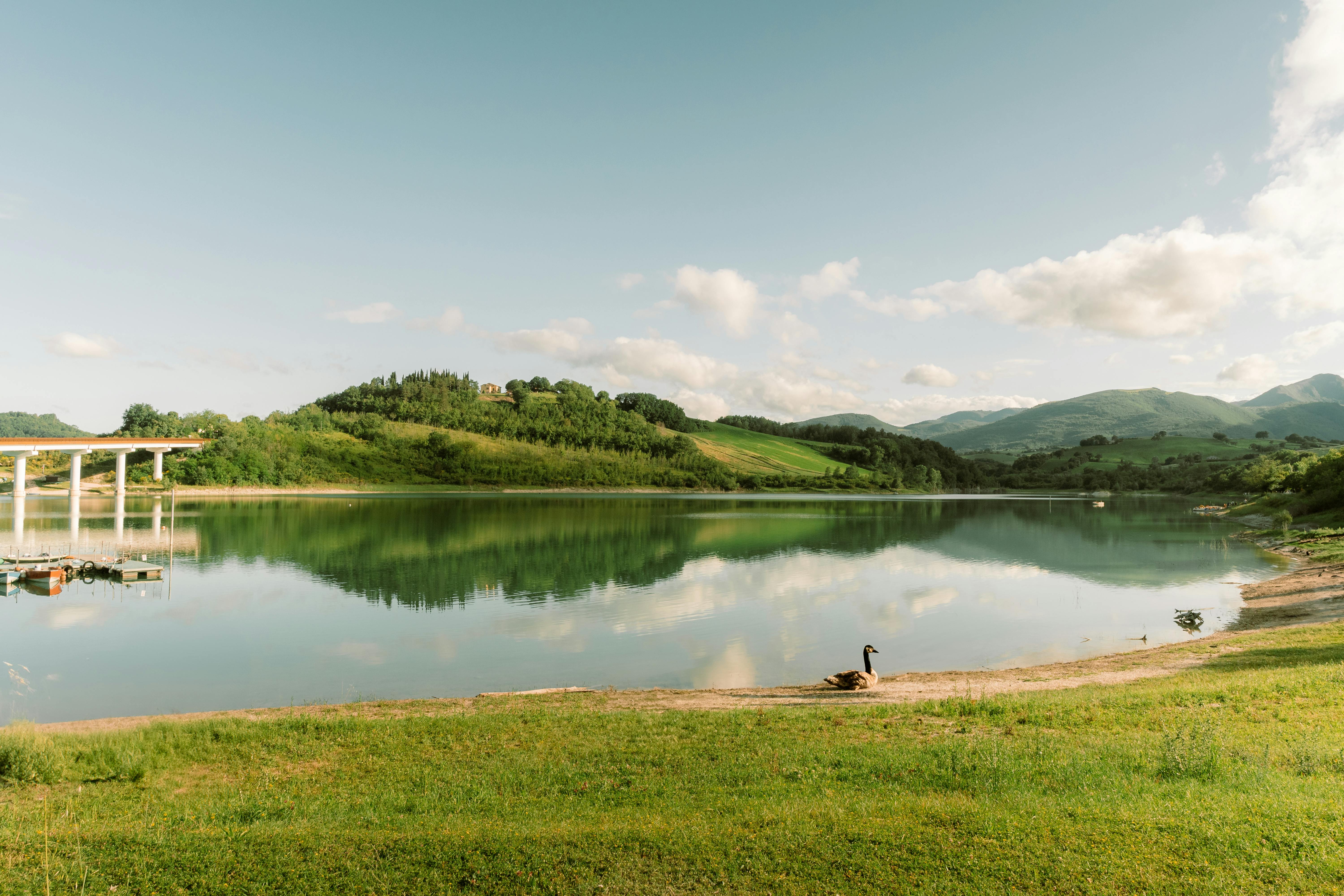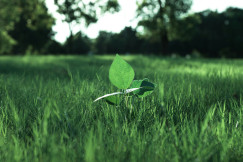Articles
25 July 2025
Regenerative Green Transition Highlights June and July 2025
Articles
25 July 2025
Regenerative Green Transition
Proximity and social economy
Agri-food
+63 more
Login / create an account to be able to react

As Europe accelerates its transition towards a greener future, the social economy plays a key role in pioneering sustainable and community-driven solutions. From citizen-led energy initiatives to ethical tourism models, these best practices showcase how regenerative approaches can drive systemic change while fostering resilience, inclusivity, and environmental stewardship. The following highlights demonstrate the transformative impact of social economy actors in the green transition, reinforcing the importance of collaboration and innovation in building a more sustainable future.
Topics
Albania
Armenia
Austria
Belgium
Bosnia and Herzegovina
Bulgaria
Croatia
Cyprus
Czechia
Denmark
Estonia
EU-27
Finland
France
Georgia
Germany
Greece
Hungary
Iceland
Ireland
Italy
Kosovo
Latvia
Liechtenstein
Lithuania
Luxembourg
Malta
Moldova
Montenegro
Netherlands
North Macedonia
Norway
Poland
Portugal
Romania
Serbia
Slovakia
Slovenia
Spain
Sweden
Switzerland
Türkiye
Ukraine
Other
Academic / Research and VET Institutions
Business Support Organisation
Company with 250 or more employees
Cluster Organisations
Consumer Organisations
Cultural and Heritage Organisations
Destination Management & Marketing Organisations
EU Institutions
Financial Institutions and Investors
Industry Associations and Chambers of Commerce
International Organisations
Local Authorities
Media / Journalist Organisations
National authorities
Networks and Federations / Confederations
NGOs / Non-profits
Notified Bodies
Regional Authorities
SMEs (a company with less than 250 employees)
Social Economy Entity
Trade Unions
Other
-
Thematic area
-
-
Regenerative Green Transition
-
-
Interlinkages with other sectors
-
-
Proximity and social economy
-
Agri-food
-
Construction
-
Cultural and creative industries
-
Digital
-
Electronics
-
Energy intensive industries
-
Energy-renewables
-
Health
-
Mobility, transport, automotive
-
Retail
-
Textile
-
Tourism
-
Aerospace and defence
-
-
Action areas and keywords
-
-
15-minute city
-
Access to Finance
-
Access to technology
-
Addressing capacity and skills gap
-
Advancing gender equality and safety at work
-
Blue Economy
-
Boosting digital skills by - and in the social economy
-
Buy social
-
Certification, labelling and self-regulation
-
Circular Economy
-
Clusters (including Cluster of social and ecological innovation)
-
Corporate social responsibility (CSR)
-
Creating financial incentives and supportive regulation for green and circular social economy business models
-
Data Maturity and data driven business models
-
Data sharing, Data management & Code of Conduct
-
Digital Platforms
-
Digital social innovation
-
Economic democracy
-
Education
-
Future workplaces
-
Greening infrastructures and business operations
-
Housing
-
ICP rights & workers involvement
-
Industrial relation and social dialogue
-
Innovation
-
Innovation as enabler for green transition and business development in the social economy
-
Internationalisation
-
Local employment
-
Local Green Deals, green business communities and citizens’ initiatives
-
Local Markets
-
Micro mobility
-
New business models
-
New business models – the platform economy
-
New European Bauhaus
-
Other action area
-
Public and private tech partnerships and support
-
Reinforcing Business to Business collaboration for greener and circular value chains
-
Responsible (Public) Procurement
-
Smart mobility
-
Social Finance
-
Socially oriented territorial regeneration
-
Strategy for Data
-
Supporting Digital Social Innovation & Tech for Good entrepreneurship
-
Sustainable Finance
-
Tech for Good
-
-
Ecosystem focus
-
-
Proximity economy
-
Social economy
-
-
Scope of activity
-
-
International
-
Local/neighbourhood
-
National
-
Regional
-
Share
Solid’R International: A cross-border label advancing the social and circular economy
Solid’R International is a voluntary label that certifies social economy organisations committed to ethical, inclusive, and circular practices. Active in four EU countries, it helps donors and authorities identify responsible collectors and promotes cross-border collaboration for a more sustainable economy.
Ecofficine: Building Sustainable and Inclusive Communities Through Education and Collaboration
Ecofficine is a social cooperative fostering social and environmental sustainability through community-based initiatives. Their inclusive approach engages schools, public bodies, non-profits, businesses, and citizens, promoting active participation, collaborative networks, and shared responsibility. Their initiative offers valuable insights for educators, social economy actors, and local development practitioners working to strengthen proximity economies and build more inclusive, sustainable communities.
Ghent en Garde: Transforming Urban Food Systems for Sustainability and Equity
Ghent en Garde is a city-led initiative in Belgium promoting sustainable urban food systems by strengthening local supply chains, reducing food waste, and encouraging plant-based diets, delivering both environmental and social impact.
Village Partenaire: A Sustainable Business Ecosystem Supporting Green and Social Entrepreneurship
Village Partenaire is an eco-managed business centre based in Brussels that combines sustainable office solutions with personalised entrepreneurial support. Hosting over 30 companies and supporting nearly 700 business creations since 2007, Village Partenaire offers all-inclusive office rentals, meeting spaces, and expert coaching for entrepreneurs. Rooted in the principles of social and circular economy, the centre fosters local and sustainable entrepreneurship while reducing environmental impact. Through a variety of services—from urban farming initiatives to business coaching and sustainable mobility solutions—it has become a key hub for entrepreneurs committed to positive social and ecological transformation.
SAW-B and Socioeco.org: Driving Social Economy Through Collective Knowledge and Advocacy
SAW-B (Solidarity of the Walloon and Brussels Alternatives) is a federation of over 120 social economy enterprises operating across Wallonia and Brussels. As both a policy advocate and enterprise incubator, SAW-B works to promote social and solidarity economy (SSE) models as viable alternatives to neoliberal capitalism. Through its multilingual knowledge-sharing platform Socioeco.org, SAW-B also provides a global hub for SSE legislation, case studies, tools, and resources, enhancing visibility, education, and collaboration among SSE actors worldwide.
Comments (0)
See also
-
4
Content Highlights: Regenerative Green Transition April and May 2025
- Categories
- Proximity and social economy Agri-food Construction +62 more
-
1 view
Urban and Rural Wellbeing Highlights: June and July 2025
- Categories
- Proximity and social economy Agri-food Construction +62 more
-
6
Working Conditions and Governance Highlights June and July 2025
- Categories
- Proximity and social economy Agri-food Construction +62 more




